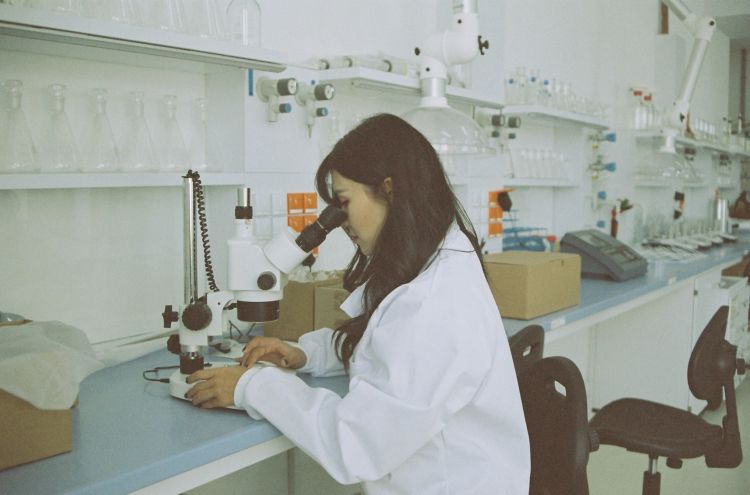Aruna Bio Announces FDA Clearance of IND for Lead Program AB126, Enabling the First Exosome to Enter in Human Clinical Trials for a Neurological Indication
January 16, 2024 08:00 ET| Source: Aruna Bio
BOSTON and ATHENS, Ga., Jan. 16, 2024 (GLOBE NEWSWIRE) — Aruna Bio, Inc., a pioneer in the development of neural exosome-based therapeutics for the treatment of neurodegenerative diseases, today announced the U.S. Food and Drug Administration (FDA) has cleared the Investigational New Drug (IND) application of lead program, AB126. This decision paves the way for the Phase 1b/2a clinical trial in acute ischemic stroke, which is expected to initiate in the first half of 2024. AB126 is an unmodified neural-derived exosome with an innate ability to traverse the blood brain barrier and shows evidence of anti-inflammatory and neuroprotective properties.
“We are thrilled with this validation from the FDA, which not only positions AB126 as the first exosome to enter human clinical trials for a neurological indication, but underscores the therapeutic feasibility of our platform,” said Steven Stice, Ph.D., Co-Founder and Chief Scientific Officer of Aruna. “Further, maintaining cells under controlled conditions is a key aspect of exosome manufacturing and we look forward to leveraging our in-house GMP manufacturing expertise to support clinical advancement. Simultaneously, we are expanding AB126’s applications across other indications, including amyotrophic lateral sclerosis, and exploring the broader potential of our neural exosome platform in overcoming existing challenges in CNS treatments.”
Aruna’s proprietary in-house GMP production facility allows for the manufacture of clinical grade batches under conditions that enable optimal and scalable consistency. Additionally, the unique purification techniques allow precise control over critical quality attributes. The establishment of protocols for analytical methods and well-characterized assays ensure therapeutic consistency.
Sean Savitz M.D., Primary Investigator and Professor of Neurology, Director of the Institute for Stroke and Cerebrovascular Disease at UTHealth Houston commented, “We look forward to building on the preclinical findings that showed AB126 may diminish neuro-inflammation, and potentially foster neuroprotection, and promote neuro-regeneration.”
About the Phase 1b/2a Clinical Trial
The planned dose-ascending clinical trial will evaluate the safety, tolerability, and preliminary efficacy of AB126 in patients with an acute ischemic stroke that have undergone a thrombectomy. Patients will receive three intravenous injection treatments of AB126 at a low, medium, and high dose. Patients with a poor prognosis post thrombectomy will be enrolled in the trial.
About Acute Ischemic Stroke
Acute ischemic stroke, caused by a clot blocking blood flow to the brain, is a leading cause of long-term disability and mortality worldwide. Current treatments, such as clot-busting drugs and mechanical thrombectomy, are effective but have strict time constraints for administration, often leaving a significant number of patients ineligible. Additionally, these treatments do not address the complex cascade of cellular and molecular events triggered by ischemia. Therefore, there is a critical need for innovative therapies that can extend the treatment window, mitigate neuronal damage, and enhance recovery, thereby improving outcomes for a broader range of stroke patients.
About Aruna Bio
Aruna Bio is a leader in the development of neural exosomes for the treatment of neurodegenerative diseases. The company is utilizing its proprietary neural exosome platform and manufacturing capability to develop a pipeline of neural exosome-based therapeutics able to cross the blood brain barrier and enhance the body’s anti-inflammatory, self-repair and protective mechanisms to treat a range of neurodegenerative disorders where significant unmet medical need exists today. Additionally, the company’s neural exosome platform can be combined with therapeutics, such as small molecules, siRNAs and proteins, to cross the blood brain barrier and to the site of disease.
Investor Contact:
Corey Davis, Ph.D.
LifeSci Advisors
212-915-2577
cdavis@lifesciadvisors.com
LINK: https://www.globenewswire.com/en/news-release/2024/01/16/2809846/0/en/Aruna-Bio-Announces-FDA-Clearance-of-IND-for-Lead-Program-AB126-Enabling-the-First-Exosome-to-Enter-in-Human-Clinical-Trials-for-a-Neurological-Indication.html





